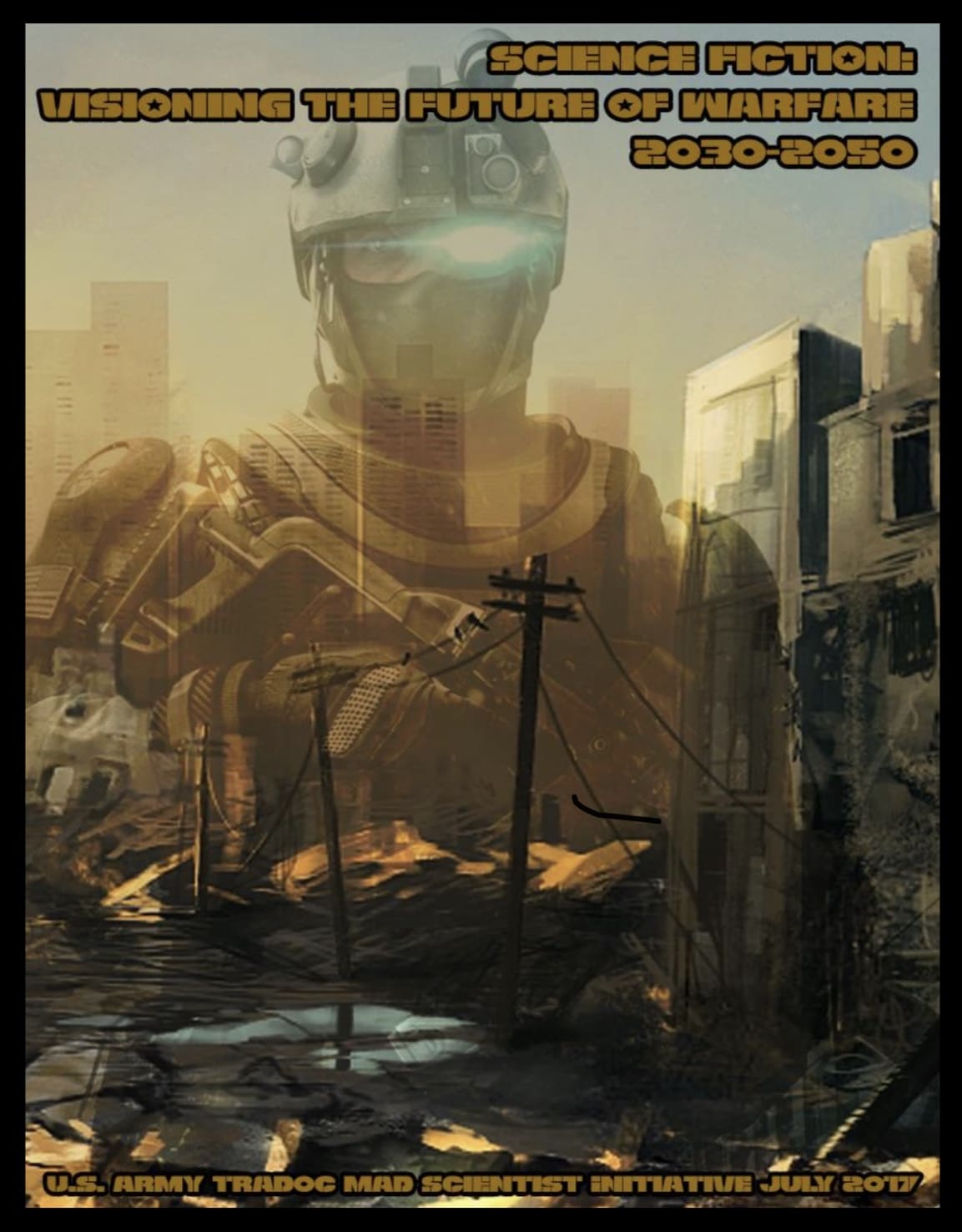Generally, works of fiction about the future are considered science fiction and allow us to look at current issues by placing our minds in a “what-if?” environment. In some cases, science fiction is also used as a wargaming tool to consider what might be.

Army University Press sponsors a Future Warfare Writing Program – program which is worth checking out.
They offer both Fiction and Nonfiction versions of the program where would-be futurists take a look at trends in Warfighting.
Complex [environment] is defined as an environment that is not only unknown, but unknowable and constantly changing. The Army cannot predict who it will fight, where it will fight, and with what coalition it will fight.
TRADOC Pamphlet 525-3-1; The U.S. Army Operating Concept: Win in a Complex World 2020-2040, 31 October 2014
Although it’s a few years old, the U.S. Army TRADOC Mad Scientist Initiative is my favorite.

Everything is available at www.armyupress.army.mil/Special-Topics/Future-Warfare-Writing-Program.


Whatever the Army looks like in 2030, I hope it won’t look like that Tom Clancy abomination in the ad. Shame to see an iconic military fiction franchise turn into that thing.
The future = giant pauldrons.
This makes me wonder if H.G. Wells, Aldous Huxley, George Orwell, and other dystopian sci-fi authors of the 19th century actually were writing for a Fabian society/ freemason thinktank imagining a future “scientific dictatorship.” Nah, probably not :/
Couldn’t be !! LarouchePac has an interesting video “1932” that spends a lot of time on Wells and Russel before it veers into it’s schpeil.
Chapter 1
The War in Afghanistan has entered its 29th year…
Ooof….Too Soon
There has not been peace in Afghanistan for four decades now.